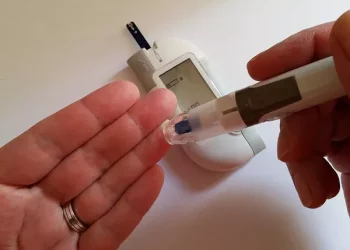Eli Lilly announced Thursday that its experimental oral medication, orforglipron, has demonstrated significant benefits for individuals with type 2 diabetes, helping them lose an average of 8% of their body weight over a 40-week period and lower their A1C levels.
This new pill form of the widely used GLP-1 medications could provide an alternative to injectable drugs, which are already popular treatments for both diabetes and obesity. Lilly’s announcement comes after Pfizer’s recent decision to end its development of a daily pill treatment for obesity due to safety concerns raised in a clinical trial.
The only oral GLP-1 drug currently available, Novo Nordisk’s Rybelsus, has been approved by the FDA for type 2 diabetes treatment but comes with strict dietary requirements. In contrast, orforglipron does not have such restrictions and is the first of its kind to complete Phase 3 clinical trials.
The study involved over 550 participants with type 2 diabetes, many of whom were struggling to manage their condition with diet and exercise alone. Those who received the highest dose of orforglipron lost an average of 16 pounds (7.9%) and continued to lose weight even by the end of the trial. Additionally, the medication helped reduce A1C levels by 1.3% to 1.6%, surpassing the effects of a placebo.
A1C, a key marker for diabetes, measures a person’s average blood sugar level over a three-month period. In this trial, more than 65% of participants were able to reduce or maintain their A1C at or below 6.5%, the threshold for diabetes control.
The GLP-1 class of medications works by stimulating the pancreas to release insulin while reducing the release of a hormone that raises blood sugar levels. These drugs also suppress appetite, leading to feelings of fullness for longer periods, which aids in weight loss.
Dr. Dan Skovronsky, Lilly’s Chief Scientific Officer, expressed confidence in the trial’s success even before the results were fully analyzed, citing the team’s optimism upon reviewing early data.
In comparison to injectable GLP-1 drugs, which have some side effects such as stomach upset, the oral version showed similar mild to moderate adverse events, with gastrointestinal discomfort being the most common. Notably, over 90% of participants adhered to the oral medication throughout the trial, despite the occasional side effects, compared to a higher dropout rate seen with injectable treatments.
Cost considerations could be significant if orforglipron is approved. Injectable GLP-1s are often expensive and require refrigeration, whereas a pill form could be more affordable and accessible to patients. Additionally, oral medications might appeal to individuals who are needle-averse, simplifying their treatment regimen.
Experts believe the pill could improve long-term adherence to diabetes and weight management therapies, which is crucial as the prevalence of both conditions continues to rise. According to the CDC, more than 40% of U.S. adults are affected by obesity, and approximately 11.6% of the population has diabetes, most of which is type 2.
Lilly is preparing for regulatory submissions later this year, with plans to apply for approval of orforglipron as a treatment for weight management by the end of 2025, followed by a submission for type 2 diabetes treatment in 2026. The company is also exploring the drug’s potential benefits for managing high blood pressure and sleep apnea, conditions that have shown improvements with injectable GLP-1s.
As the trials progress, Eli Lilly aims to ramp up production to ensure adequate supply, should the medication receive approval.
Related topics:
Comprehensive Medication Reviews Enhance Diabetes Care for Older Adults, Study Reveals
GLP-1 Drug Prescriptions Rise Among Type 1 Diabetes Patients Amid Obesity Surge
Best Breakfast Choices to Manage Type 2 Diabetes and Lower Blood Sugar























